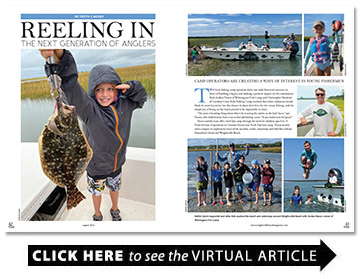Reeling in The Next Generation of Anglers
Camp operators are creating a wave of interest in young fishermen
BY Fritts Causby
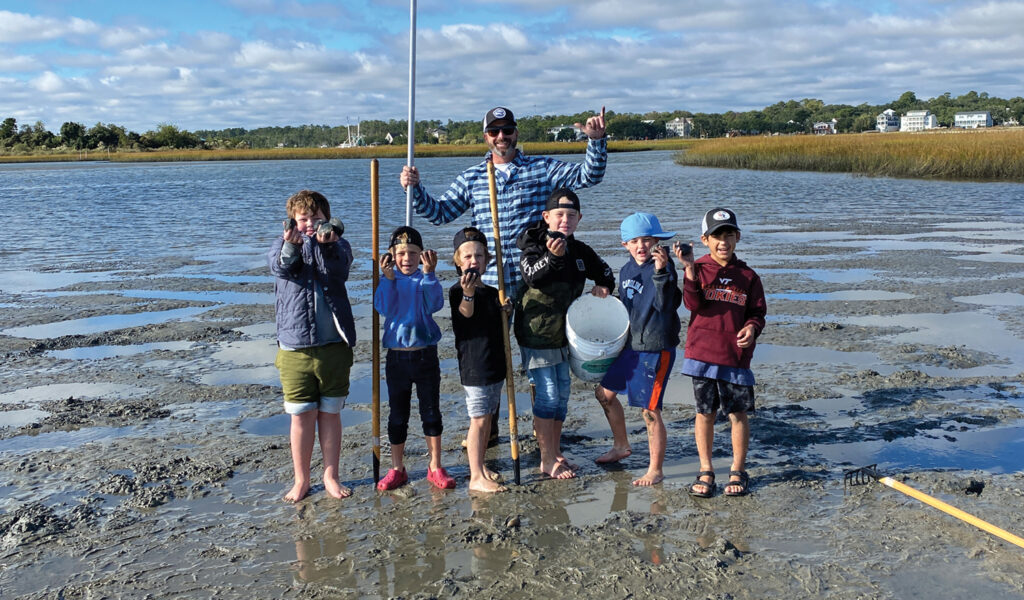
Two local fishing camp operators have cast aside financial concerns in favor of building a legacy and making a positive impact on the community. Both Jordan Nason of Wilmington Fish Camp and Christopher Shulstad of Carolina Coast Kids Fishing Camp realized that other endeavors would likely be more lucrative, but the chance to share their love for the ocean, fishing, and the simple joy of being on the water proved to be impossible to resist.
“The most rewarding thing about what I do is seeing the smiles on the kids’ faces,” says Nason, who walked away from a successful advertising career. “It just makes you feel good.”
Nason and his team offer a half-day camp through the week for children ages 6 to 15. From his base of operations in Channel Haven near Trails End boat ramp, Nason mostly takes campers on exploratory tours of the marshes, creeks, waterways and tidal flats behind Masonboro Island and Wrightsville Beach.
Campers learn about a variety of species, go crabbing, cast drift nets, and cool off on shallow sandbars when the temperatures climb.
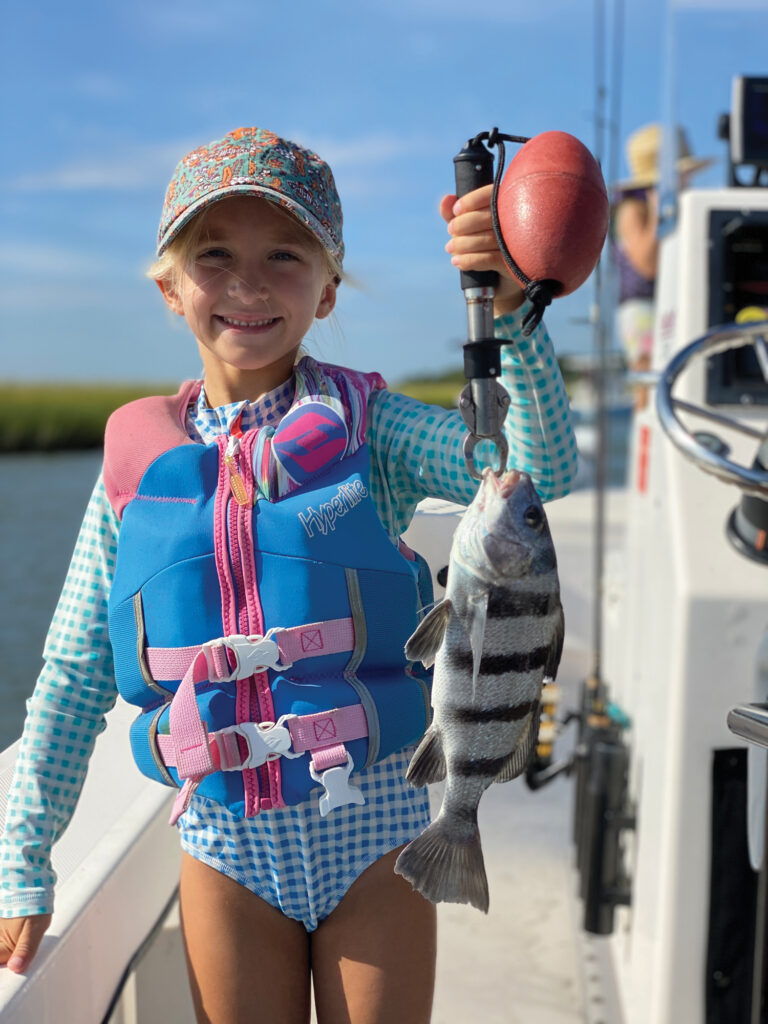
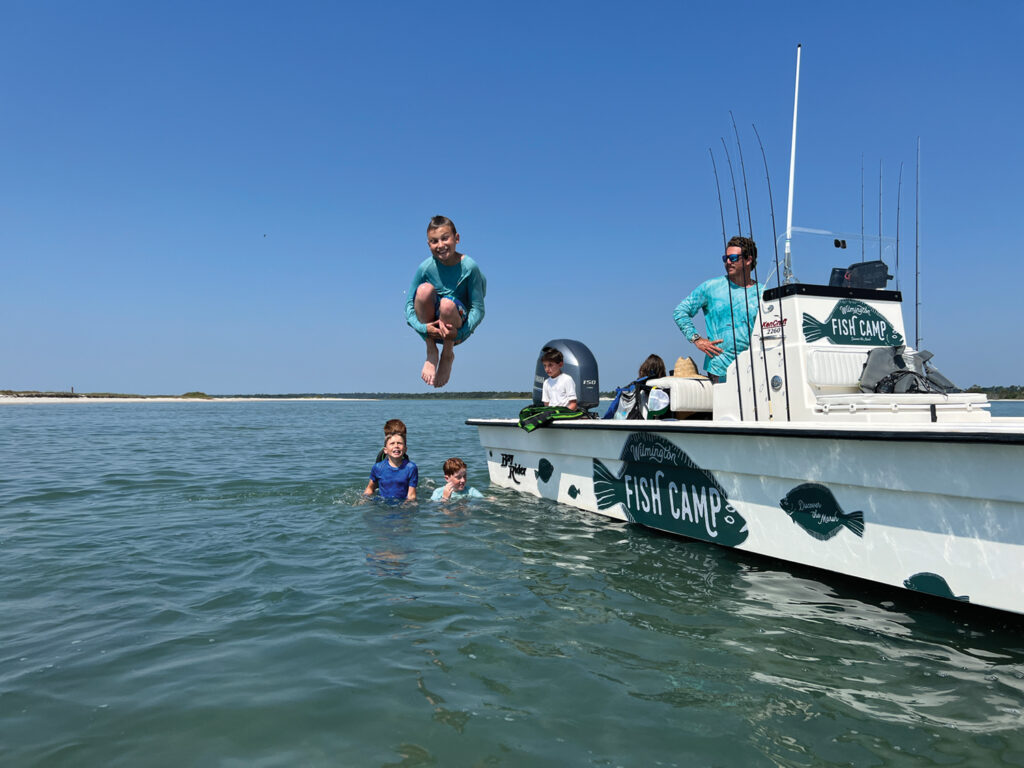
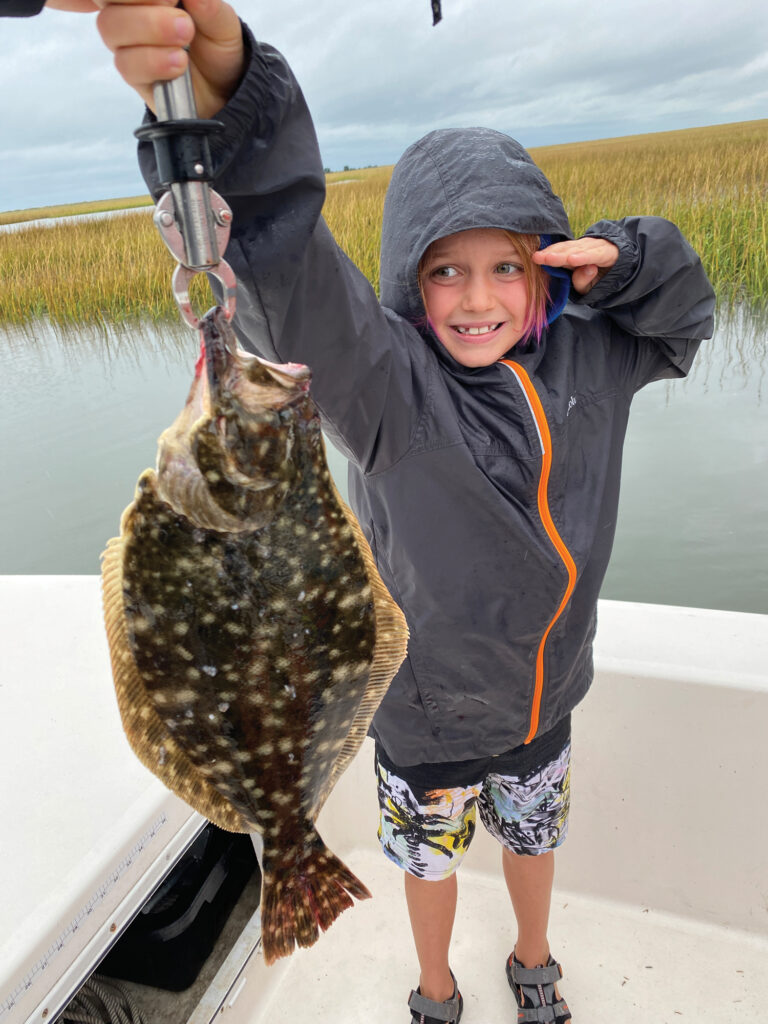
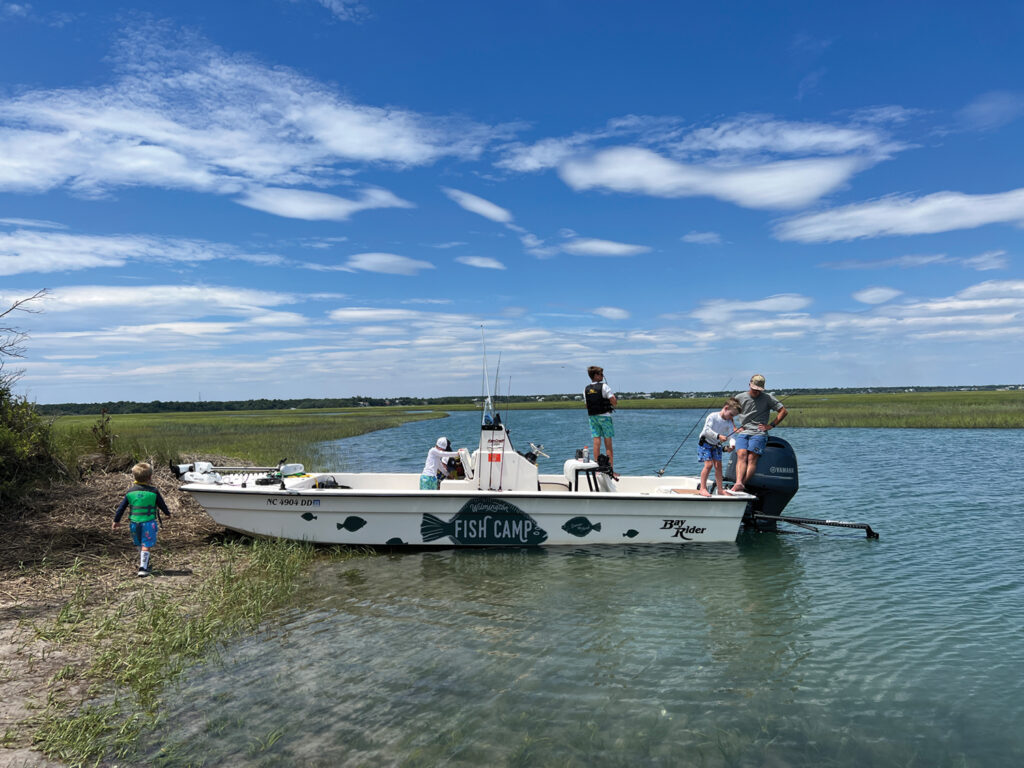
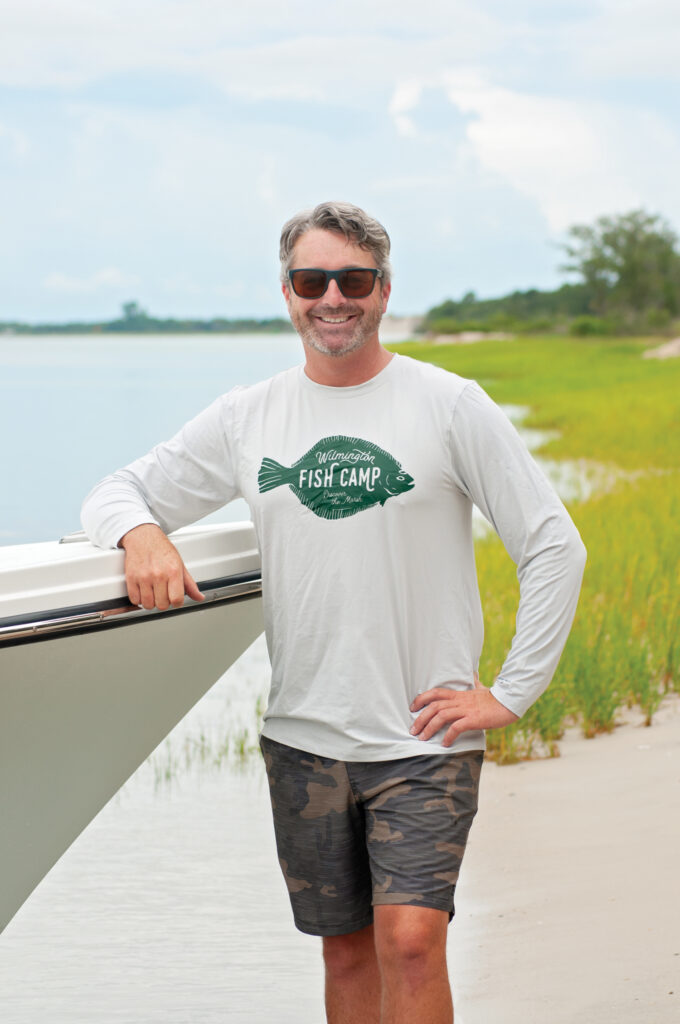
“The kids really love to go clamming, do shore-side excursions and catch fiddler crabs and mussels,” says Nason. “Some of the species we catch when fishing include croakers, puffers, pinfish, pigfish and sea bass.”
When the ocean is calm, Nason takes campers offshore to fish for larger species including Spanish mackerel and king mackerel. In response to the demand for more camps and a desire from older campers to venture offshore on a more regular basis, he recently purchased a larger vessel, capable of providing a comfortable ride in rougher conditions.
“This has allowed me to create a niche for family and fun. I wanted to do something that would be more impactful, and I’m thrilled that I get to share my passion for the marsh and fishing with the kids,” says Nason, who is currently raising funds in an effort to provide Brigade Boys and Girls Club participants with similar experiences.
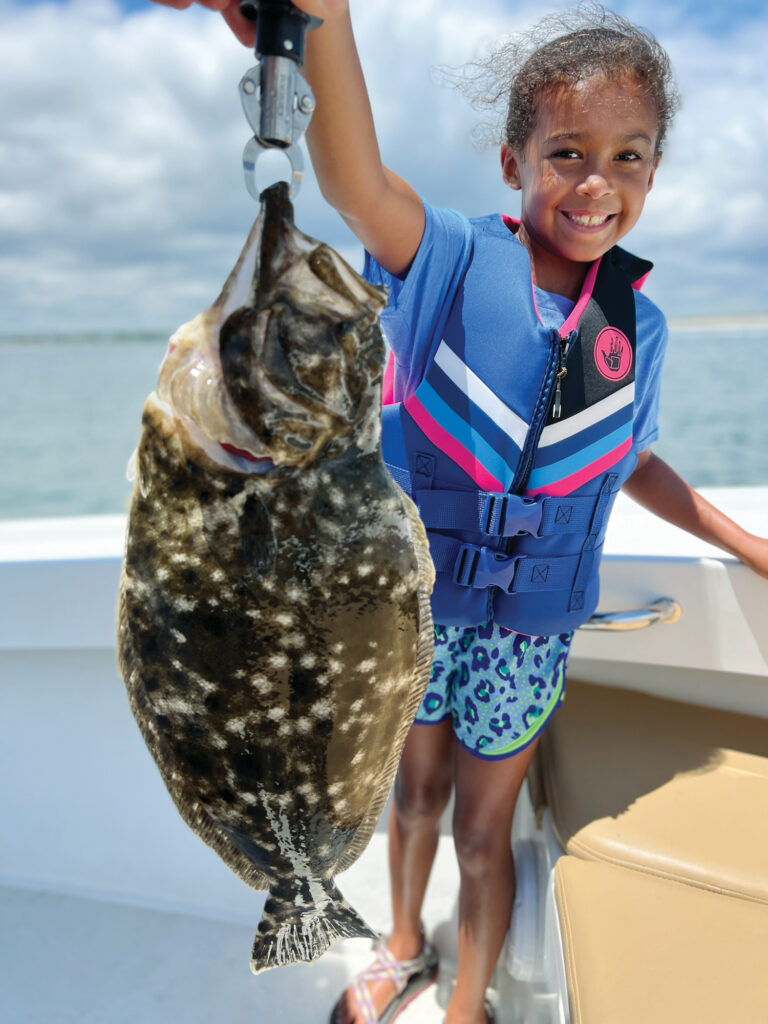
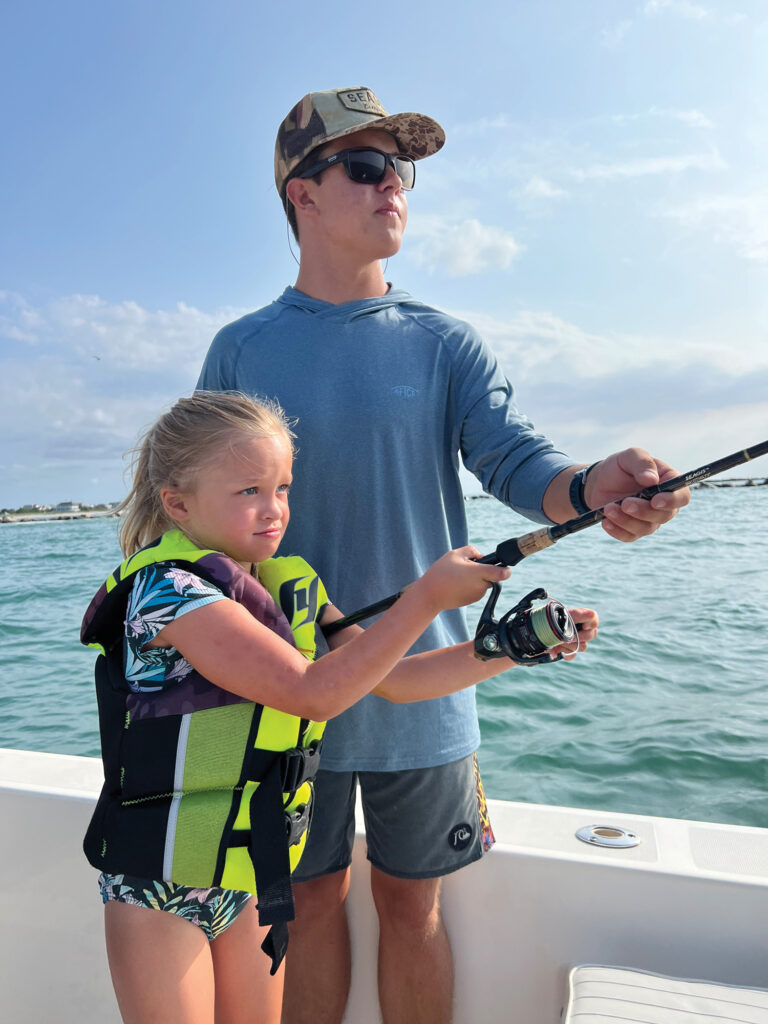
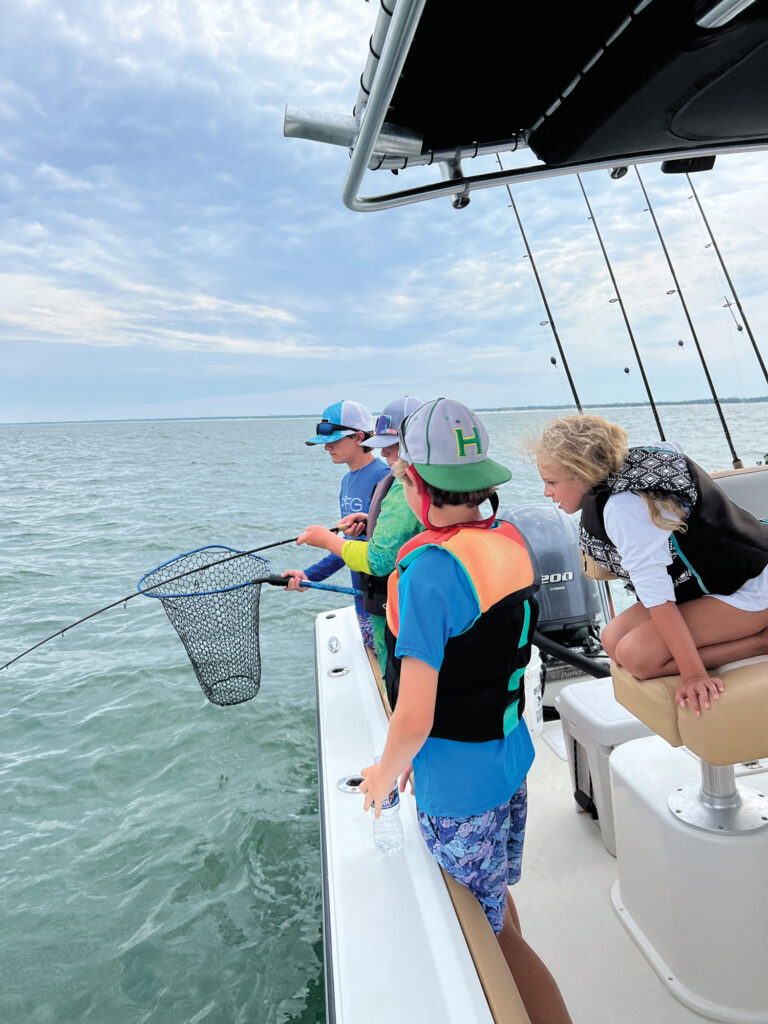
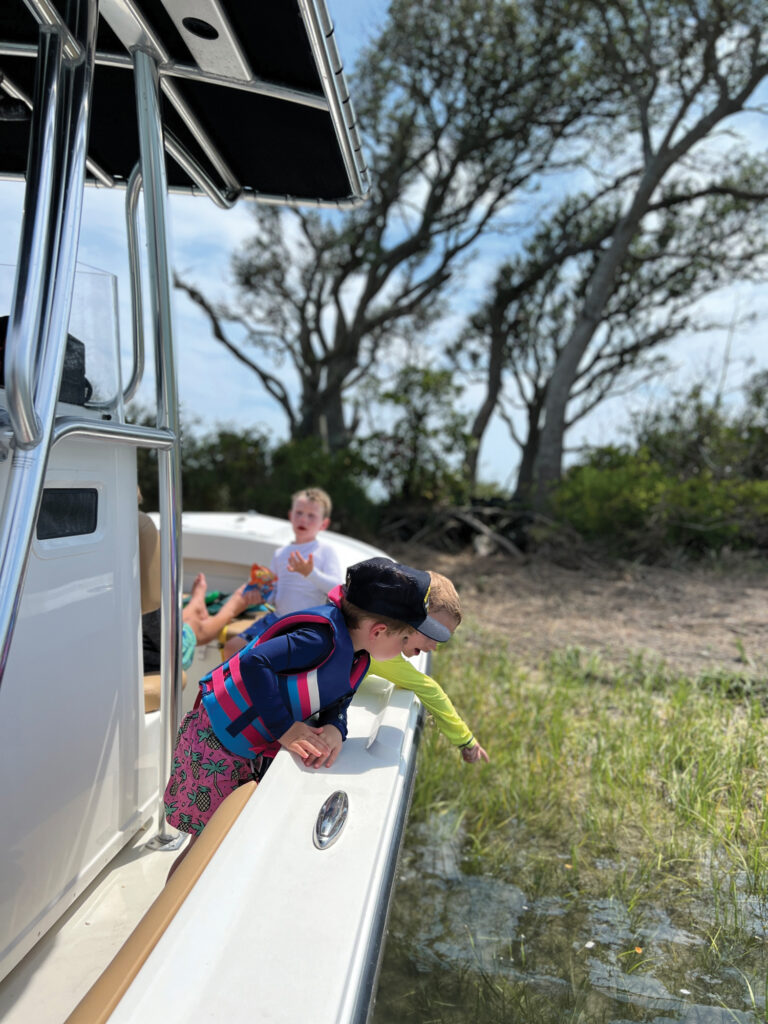
Photos by Jordan Nason
Aside from the intrinsic rewards, the popularity of the program appears to be a solid indicator of its value. Nason reports that campers from as far away as Korea and Texas have visited the Wrightsville Beach area to take part.
Similarly, Shulstad has hosted visitors from all over the country, and has a return rate of 89 percent.
Shulstad operates a surf-fishing camp from the beaches at Carolina Beach and Kure Beach.
“It’s really wonderful to get to give back to the kids,” says Shulstad, who founded Carolina Coast Kids Fishing Camp three years ago and ran it personally for two years.
Shulstad is experiencing many of the challenges facing other business owners. Though the demand for his camping experiences is substantial, the ongoing labor shortage has made it difficult to find help. As a result, Shulstad is only able to offer camps on weekends.
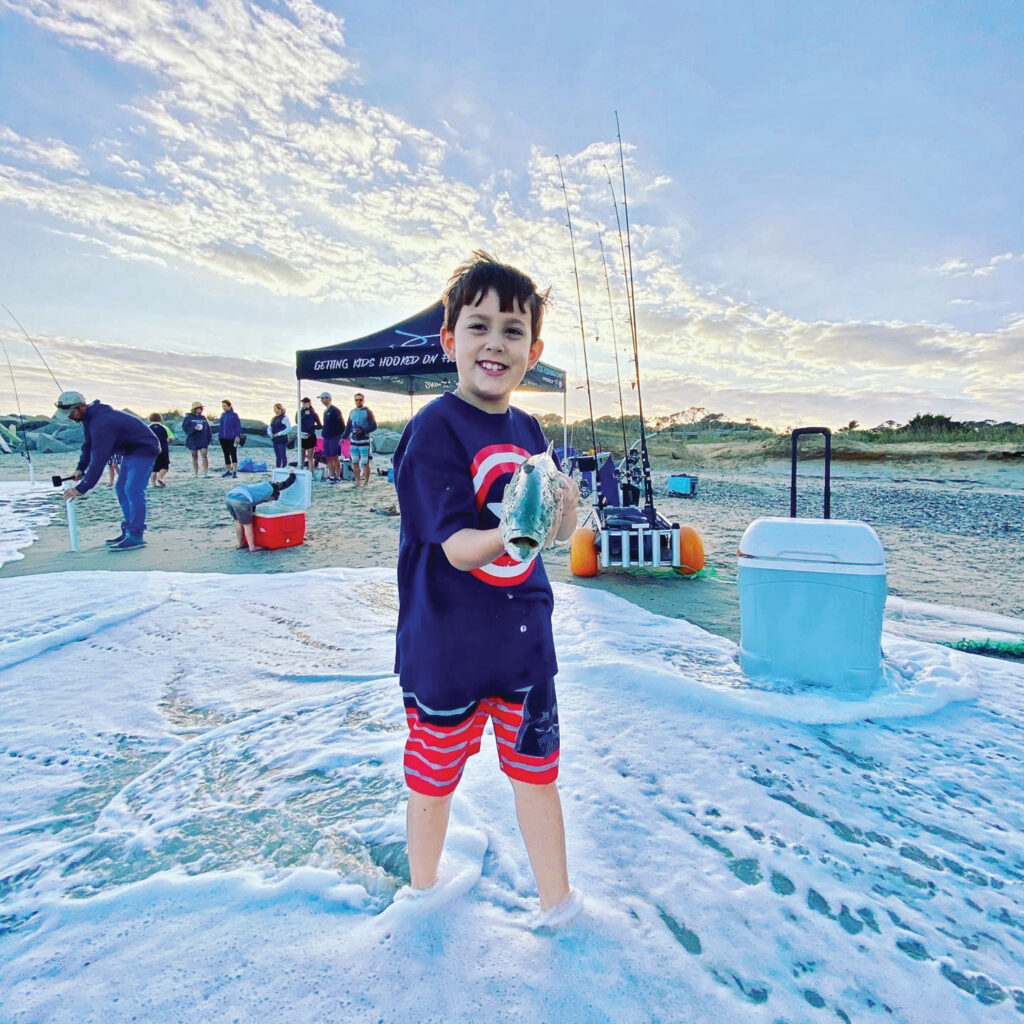
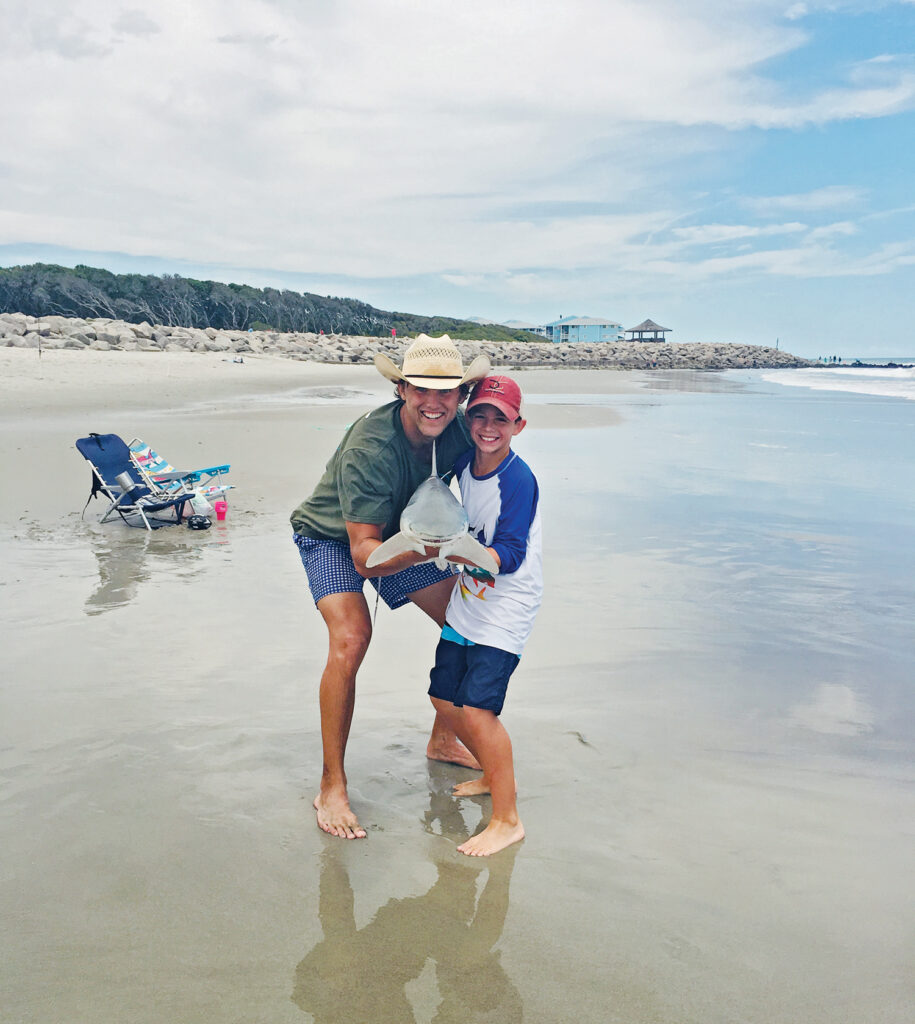
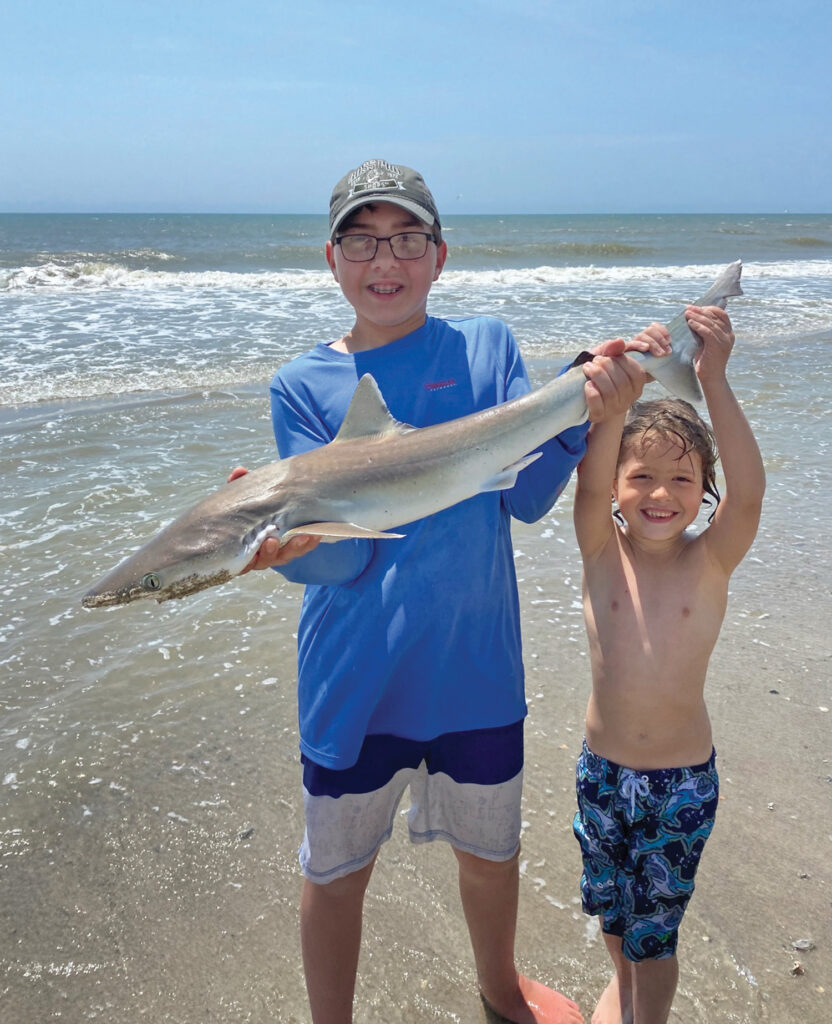
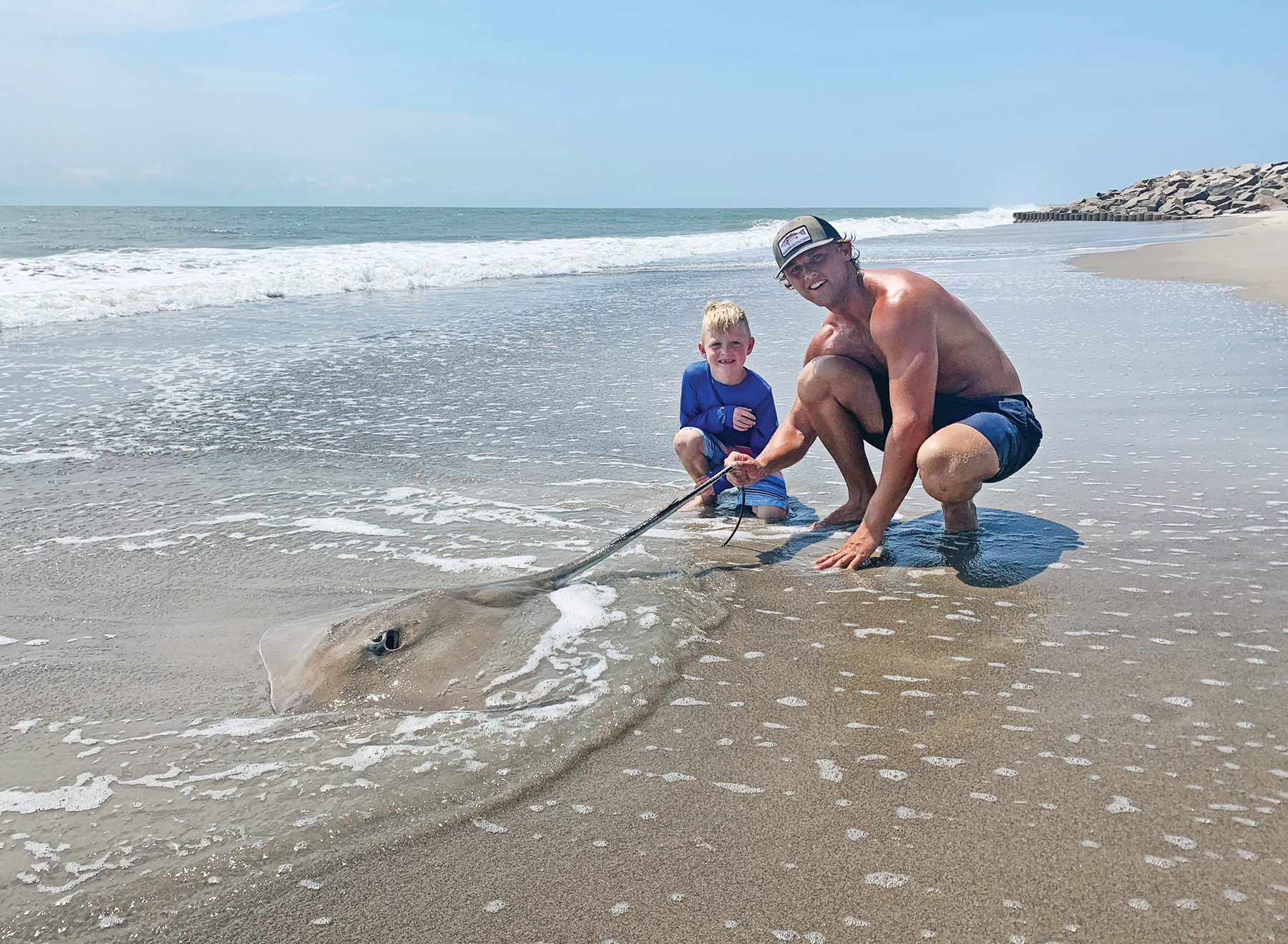
Photos Courtesy of Carolina Coast Kids Fishing Camp
“This is one of the most rewarding things in my life,” says Shulstad, who hopes to resume normal operations on Pleasure Island next summer. “Kure Beach and Carolina Beach have definitely been more business-friendly. Kure Beach especially has been wonderful.”
An average day for the campers, who range in age from 6 and 14, begins with cast nets and/or a search for mullet and croaker.
“They get to experience the full circle of life,” Shulstad says, referencing how the campers search for smaller fish to use as bait to lure in the larger fish. “To see the joy on the kids’ faces when they catch a ray or a shark is indescribable. It is also amazing to see how the kids work together, with many of the older children naturally turning into teachers. They come to camp to learn, and then they end up helping the younger kids.”
Time will tell if instilling an interest in fishing and being on the water will result in a new generation of coastal advocates. Regardless, it is worth pointing out that the value of wild-caught seafood in North Carolina contributes nearly $300 million in annual revenues. The same study, published in 2021 by NC State University, showed that the seafood industry contributes 5,500 jobs.
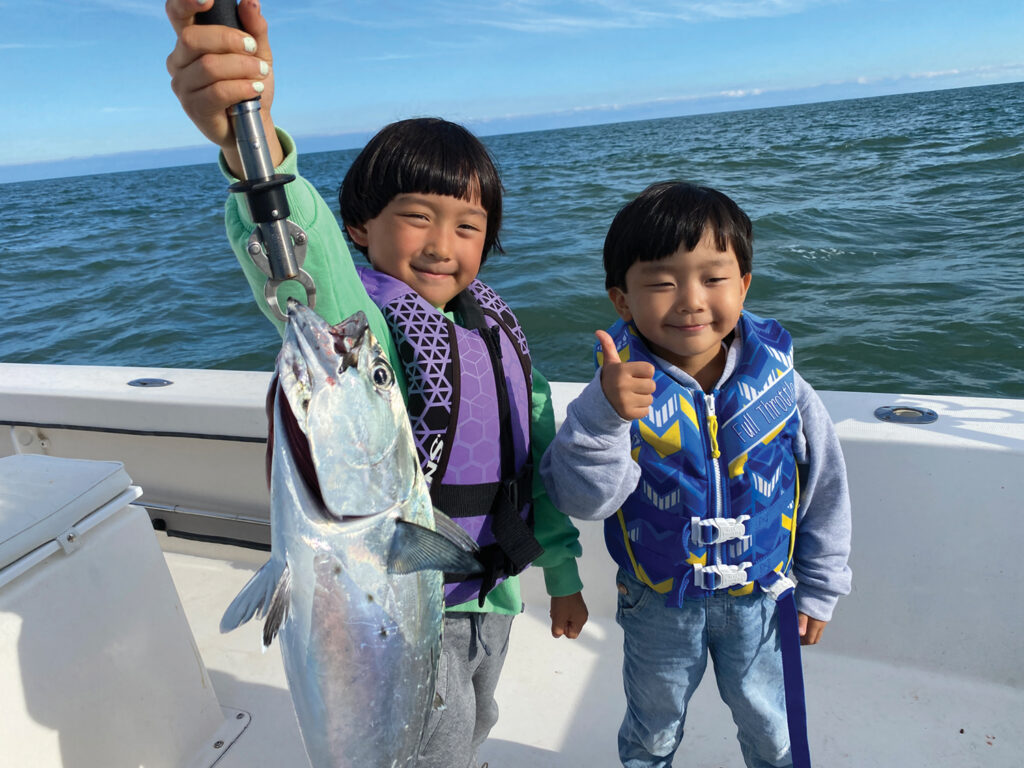
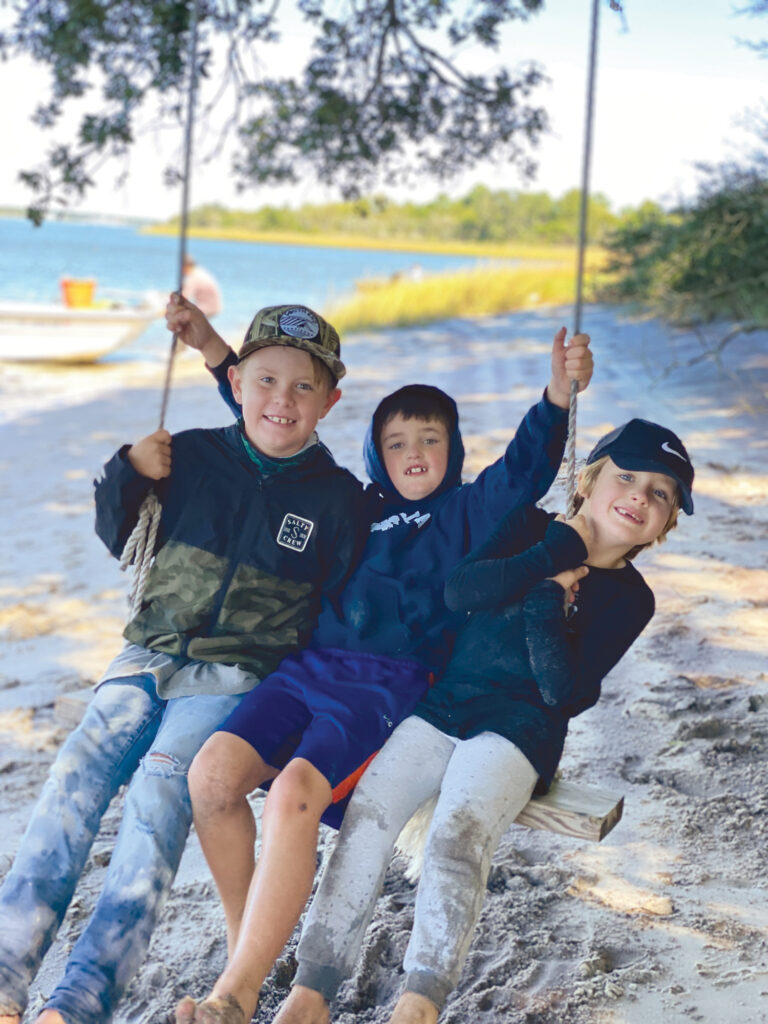
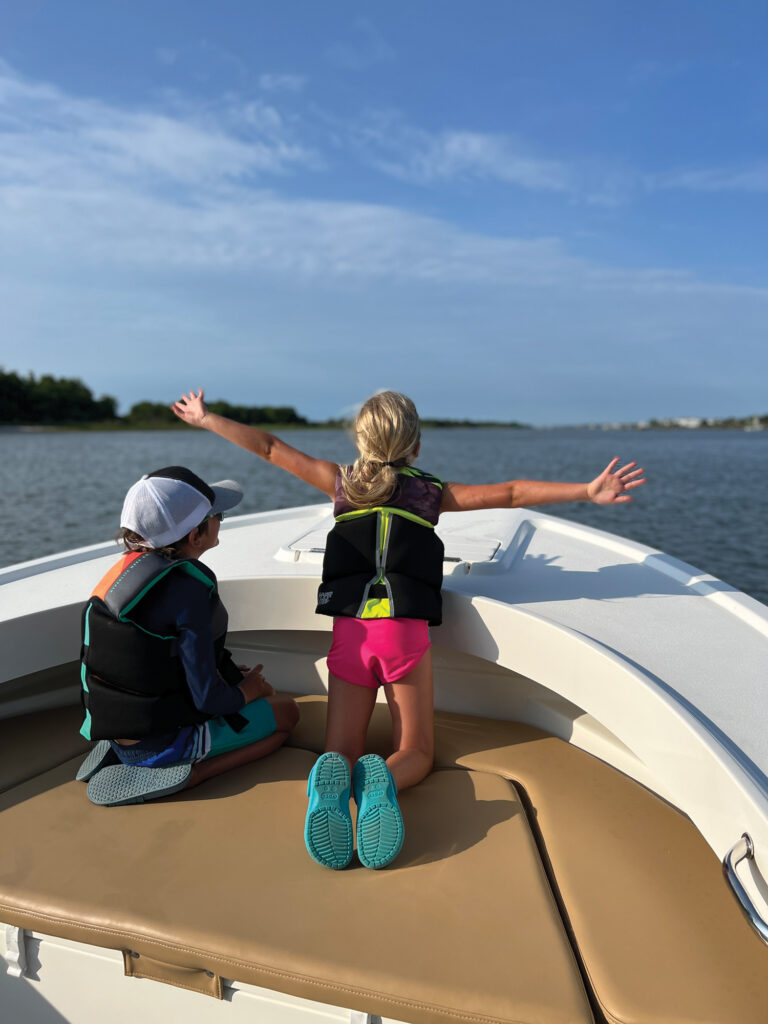
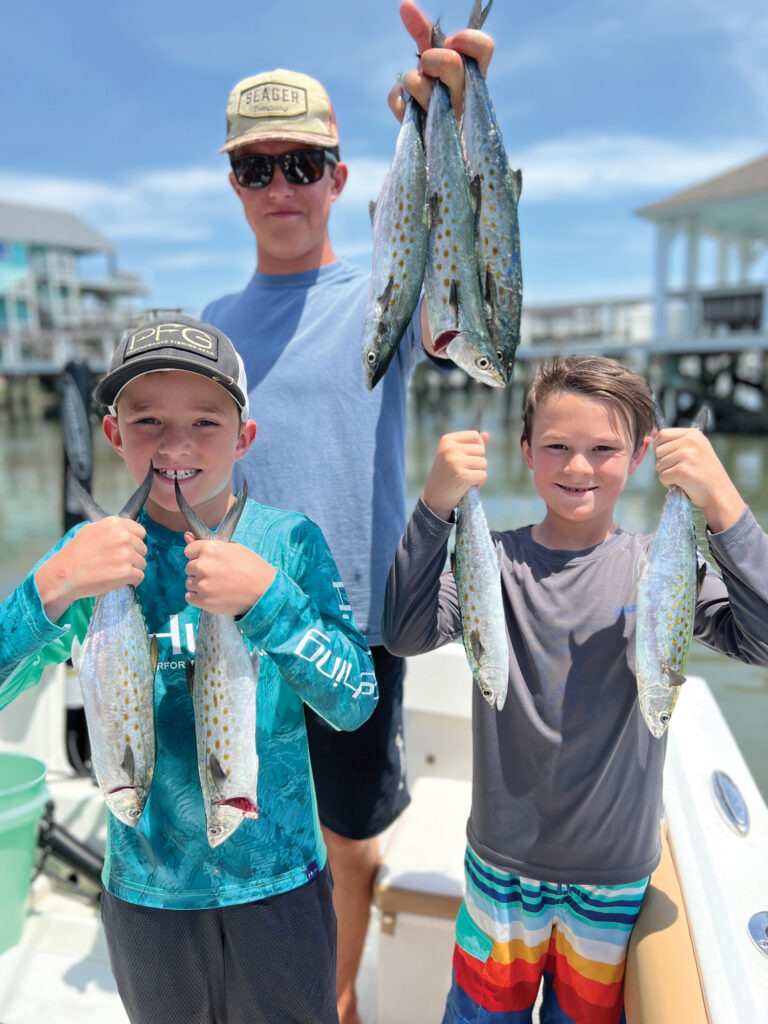
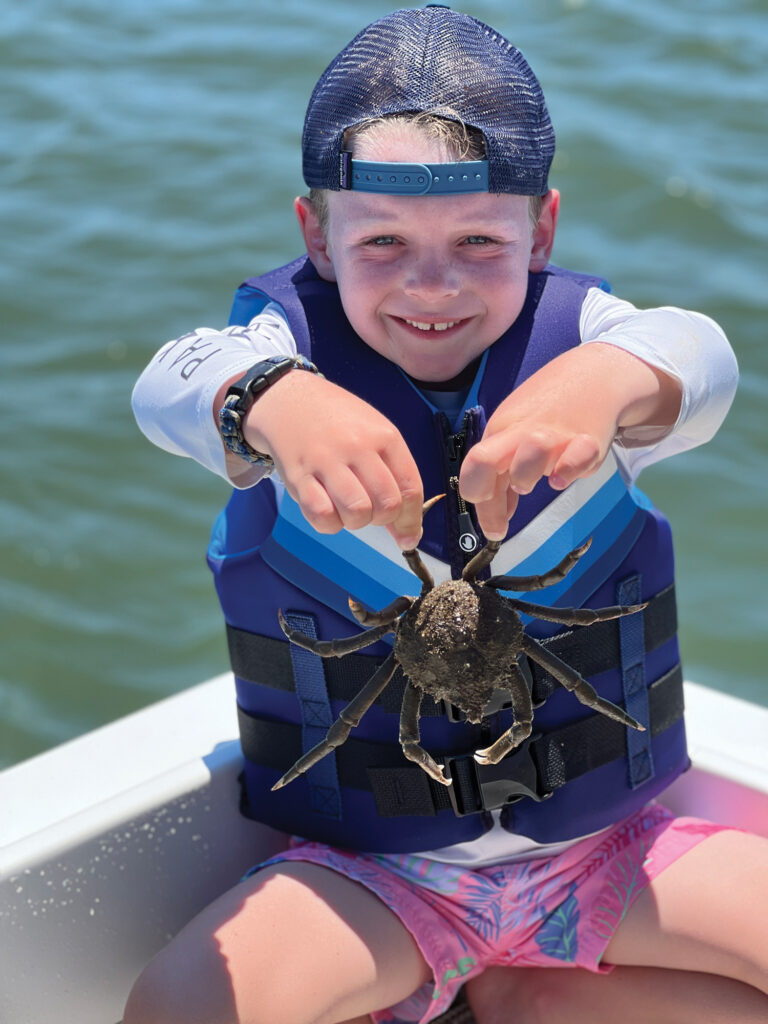
With the establishment and management of their fishing camps, Shulstad and Nason are sparking an interest with the younger generation.
“Being able to show the kids that the beauty in life is not on your phone, but instead in the natural world and the relationships you make, has truly been wonderful,” says Shulstad.

